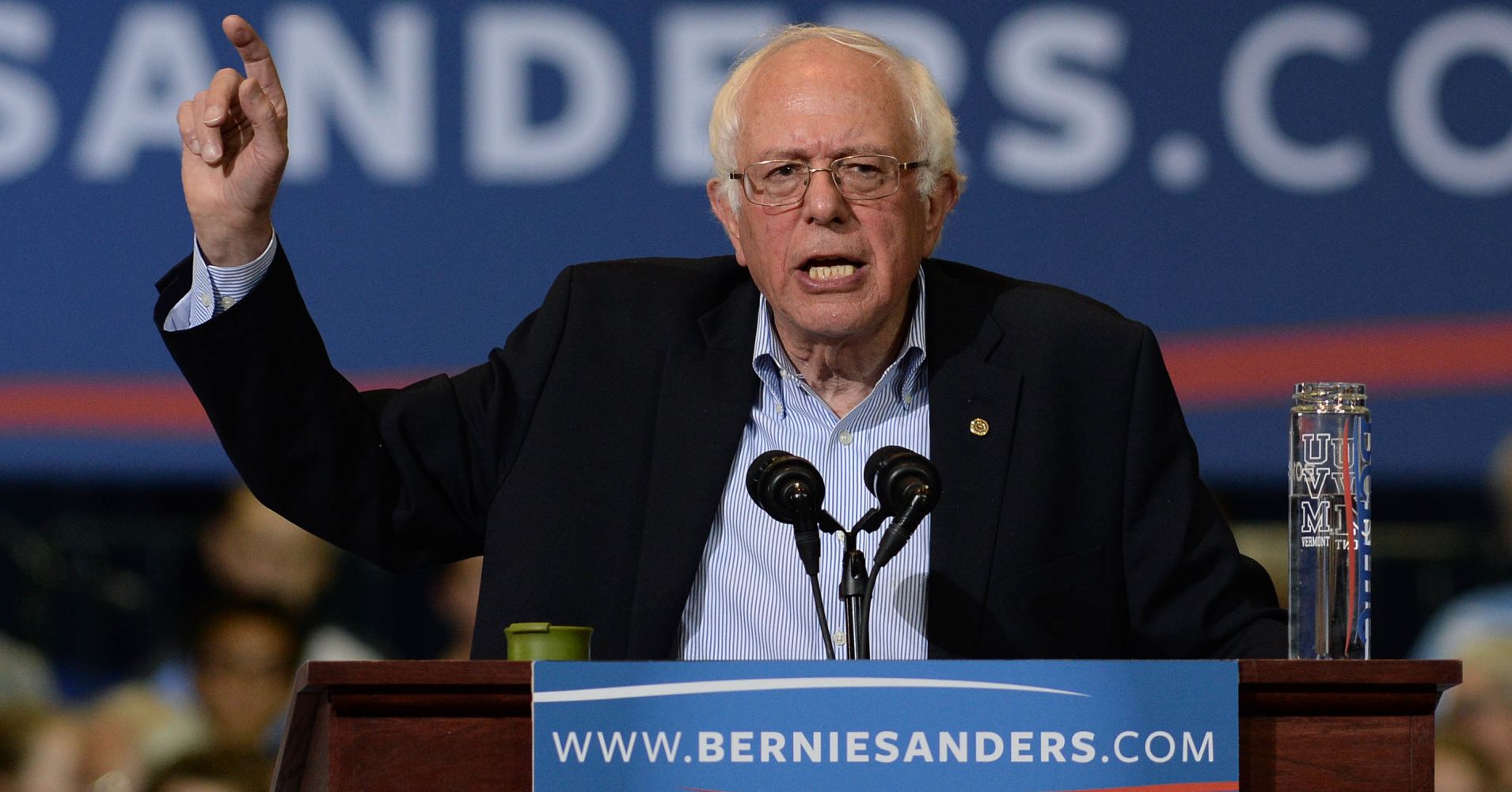
Sen. Bernie Sanders will mount another bid for the White House — and his ideas are no less sweeping than the last time he ran.
The independent senator from Vermont launched his 2020 presidential campaign Tuesday. The self-described Democratic socialist, 77, enters a crowded Democratic primary field that largely shares his views on key policies.
Since his long shot 2016 presidential bid, Sanders has been a leading ideological voice in the Democratic Party, despite his independent status in the Senate. His broadsides against corporations and business titans reflect a broader shift toward populism in the party. Out of all the Democratic candidates, Sanders would bring perhaps the most drastic changes for businesses and wealthy Americans.
His top policy goals — Medicare for All, free public college and a $15 per hour minimum wage — have become more mainstream in the Democratic Party, even if the party’s congressional leadership have not embraced all of those plans. Sanders has become so prominent that Republicans have repeatedly used him to cast Democrats as too extreme.
“Bernie Sanders has already won the debate in the Democrat primary, because every candidate is embracing his brand of socialism,” Kayleigh McEnany, a spokeswoman for President Donald Trump’s re-election campaign, argued in a statement Tuesday. Not everyone in the Democratic primary field agrees with Sanders: while candidates such as Sens. Kamala Harris of California and Kirsten Gillibrand of New York have embraced universal Medicare, others like Sen. Amy Klobuchar of Minnesota have not.
Here’s where Sanders stands on key issues and companies:
- Health care: In 2017, Sanders introduced a bill to transition to Medicare for All, a system where every American would get health care through the government. The proposal is seen as one test of liberal credentials: Democratic presidential candidates Harris, Gillibrand, Sen. Cory Booker of New Jersey and Sen. Elizabeth Warren of Massachusetts all endorsed his legislation. Critics have called his plan too radical or expensive. The Vermont senator has also joined Democratic leaders in introducing legislation to slash drug costs, in part by encouraging imports of cheaper drugs from abroad and giving Medicare more power to negotiate prices.
- Labor: Sanders has pushed for a $15 per hour minimum wage and urged major companies to give their workers raises. He introduced Senate legislation to hike the federal wage floor in January, calling the current $7.25 an hour a “starvation wage.” Booker, Gillibrand, Harris, Klobuchar and Warren are all co-sponsors. Last year, his pressure on Amazon contributed to the internet retailer raising its minimum wage to $15 per hour. He has pushed other companies, from Wal-Mart to McDonald’s, to take the same step. Numerous businesses have argued a $15 wage floor would force them to reduce hours or cut jobs. Sanders has also pushed to boost dwindling private sector labor unions.
- Taxes: The Vermont senator has slammed the Republican tax plan passed in December 2017, calling it an unnecessary boon to corporations and the wealthy. To address growing wealth inequality, Sanders wants to expand the estate tax. A plan proposed in January would tax estates starting at $3.5 million, with a 77 percent rate on billionaire estates. Various 2020 Democratic candidates have unveiled proposals to either tax the wealthy more or reduce the tax burden on the middle class.
- Investing/banks: Sanders has pointedly criticized Wall Street for years. In October, he introduced a bill to cap the size of financial institutions, which would break up banks including J.P. Morgan Chase and Goldman Sachs. Earlier this month, he unveiled a plan to restrict stock repurchases, which would put conditions on share buybacks. Senate Minority Leader Chuck Schumer, D-N.Y., endorsed it alongside Sanders in another sign of the Democratic Party’s shift.
- Education: In 2017, Sanders introduced a plan to make community college tuition-free and eliminate tuition at four-year universities for students from families with income of $125,000 or less. He has also pushed for more student loan forgiveness.
- Climate change: The senator has endorsed a version of the Green New Deal, a plan to dramatically reshape the U.S. economy to cut carbon emissions and address climate change. Other 2020 Democratic contenders have endorsed that plan in some form, though not necessarily as outlined by Rep. Alexandria Ocasio-Cortez, D-N.Y. Trump and Republican campaign groups have also seized on the freshman representative’s proposal as evidence of a Democratic Party drifting toward socialism.
Sanders enters the field with high expectations following a surprisingly strong primary showing against former Secretary of State Hillary Clinton in 2016. Still, the field this time is more crowded, filled with fresher faces who occupy a similar space in the party to the one Sanders fills.
Some race handicappers have questioned whether Sanders will enjoy the same support in 2020, when he is not the main alternative to Clinton. Many liberals saw Clinton as too centrist.
“She’s gone and activists have a wide choice of candidates in ’20. Is Bernie being underestimated as in ’16 or overestimated because of ’16?” tweeted Larry Sabato, the director of the University of Virginia Center for Politics.

